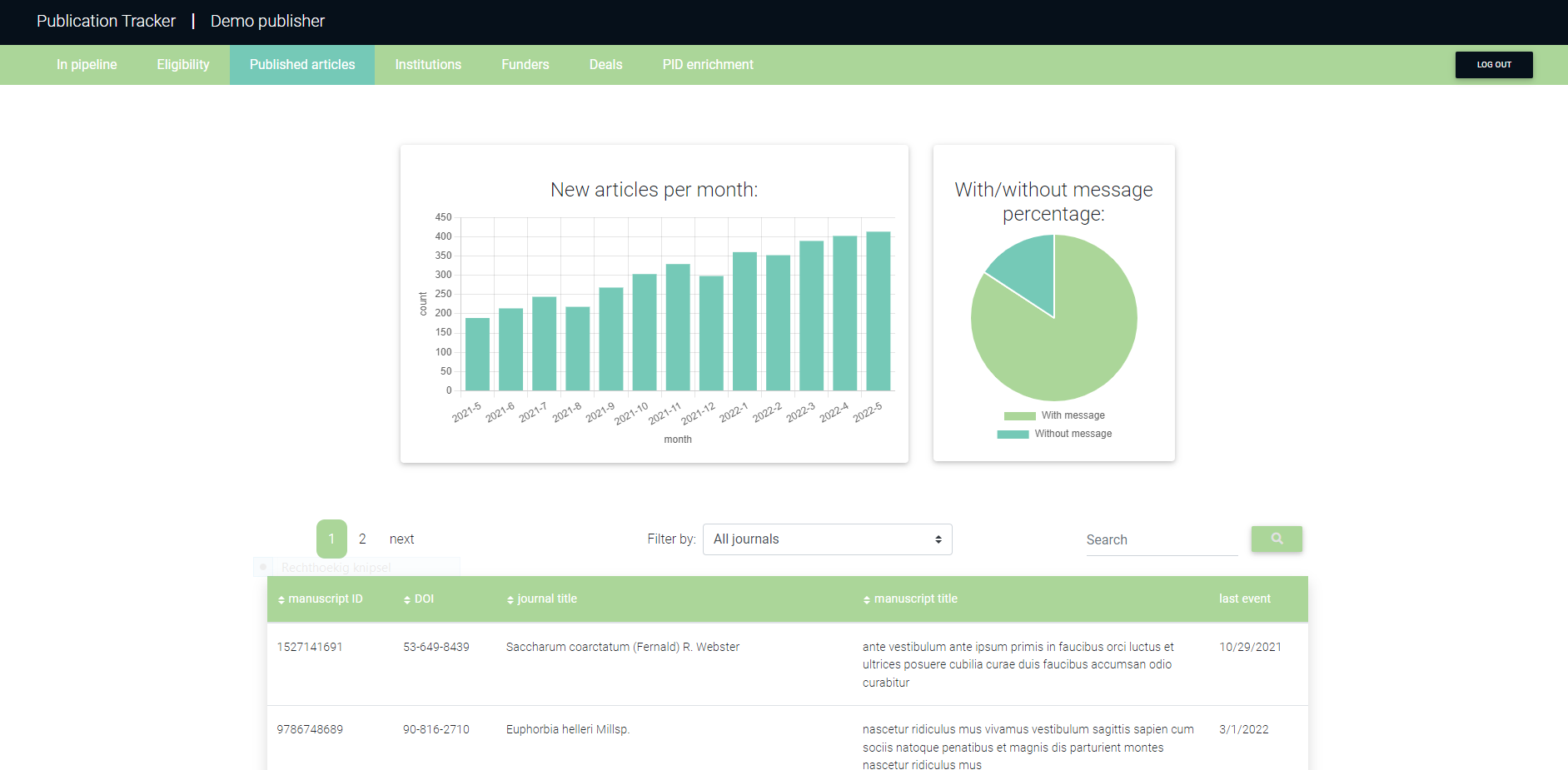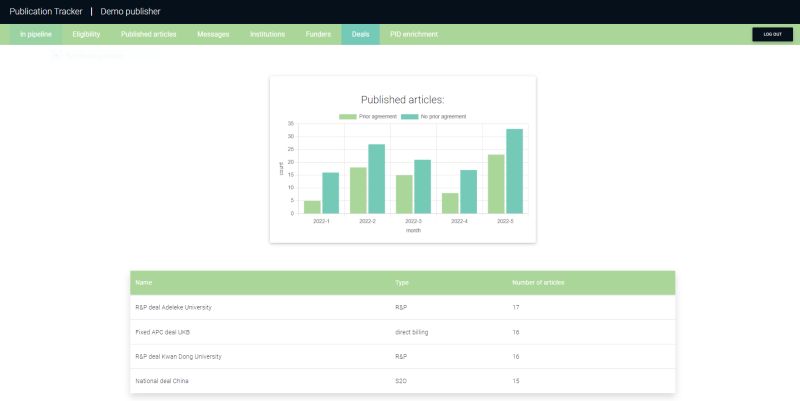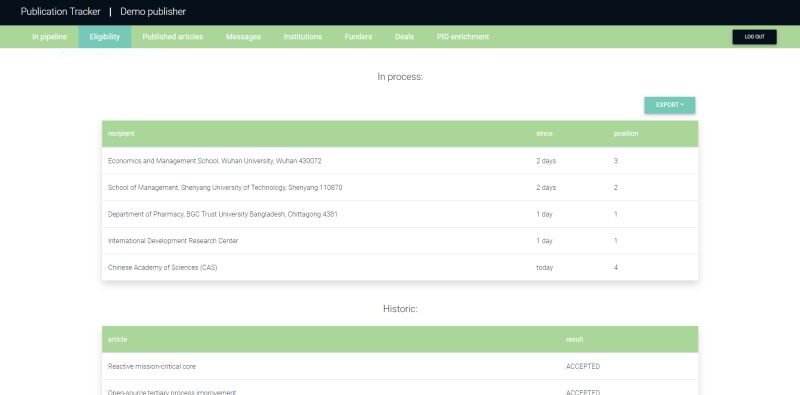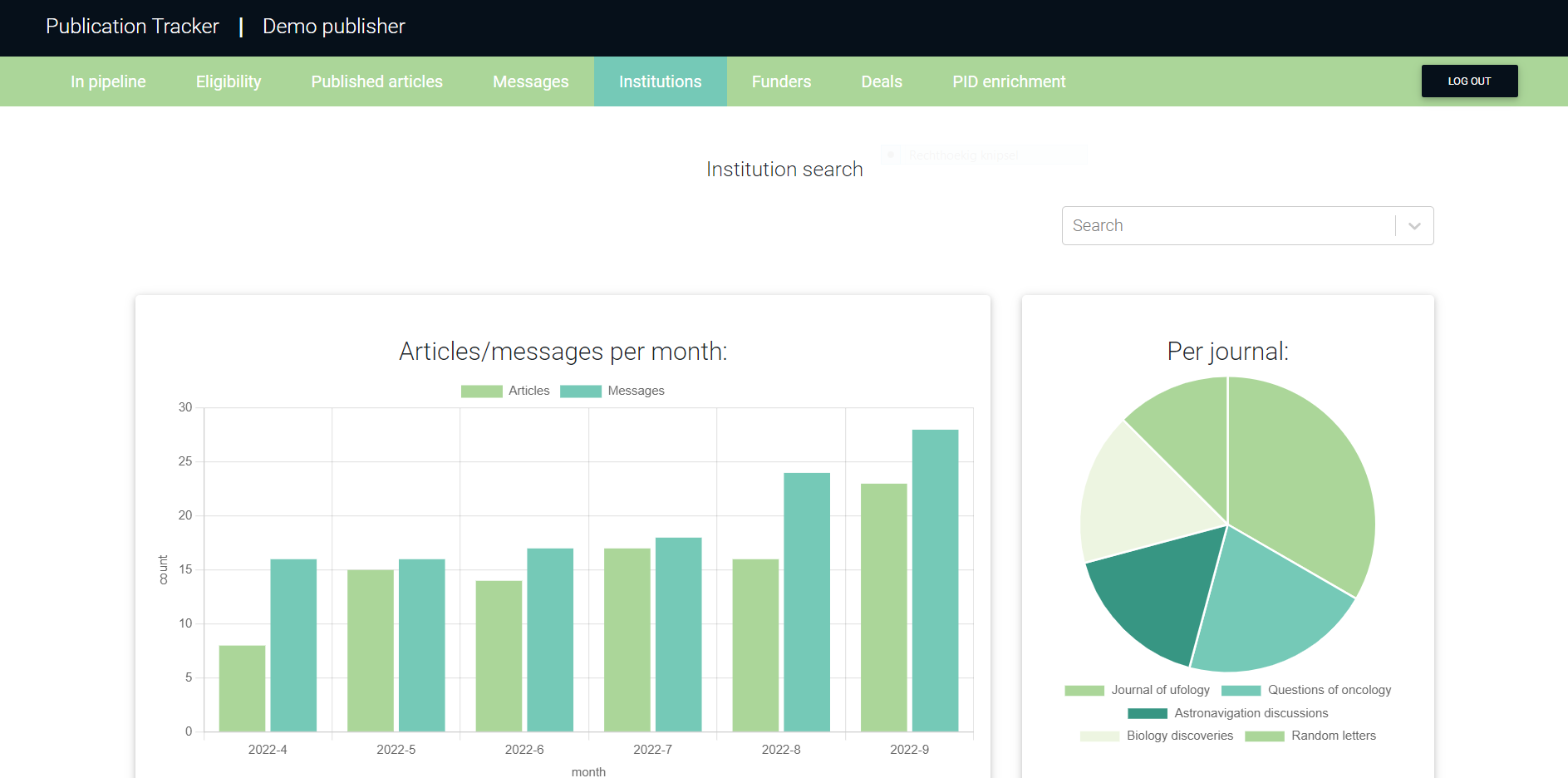
Publication Tracker
The transition to Open Access is adding even more complexity of multi-currency transactions as well introducing new actors like institutions and funders, who might also play a role in the financial settlement. A transaction is not a sequential workflow step. It runs on a more or less parallel track.
We have developed an easy to use tool called the Publication Tracker. It provides a flexible (meta)data store that captures “events” from different systems like your editorial system, production and content distribution systems, as well as any financial or payment systems.
Each event comes with metadata that will update the master record in the store. The Publication Tracker thus becomes an ultimate tool providing reporting capabilities across all your systems and workflows.
Introducing the Royal Society of Chemistry (RSC) as one of the publishers who have implemented this solution.
-
When
2023
-
Client Name
Royal Society of Chemistry
Our client
The Royal Society of Chemistry (RSC) was among the early participants of the OA Switchboard. Appetence assisted RSC in their integration with the OAS by deploying a set of Custom Connectors. Subsequently, we expanded this integration by introducing a Private Datastore and upgrading this to the Publication Tracker Tool. Currently, we are actively engaged in enhancing the integration by linking with their backend systems, including license and payment management, as well as reporting tools.
In our project for RSC, a critical aspect revolved around the enrichment of Persistent Identifiers (PIDs), such as ROR institutional and ROR/FundRef funder identifiers, which have become increasingly important. We introduced features for confirmed matching and semi-manual simple workflow solutions using AWS Mechanical Turk and our own Human Intelligent Tasks. Currently, we're progressing towards the next phase in this development, leveraging Machine Learning, with the expectation of raising the matching percentage to 80-90%.
Closely linked to PID enrichment is deal assignment. For publishers, identifying if a manuscript or article falls under a deal is crucial, already at the submission stage. The Publication Tracker supports deal management and deal assignment for different types of deals. It allows for the flexible implementation of business rules, tailored specifically for RSC to accommodate various deal types. Each deal is linked to institution(s), using institutional PIDs. That makes correct PID enrichment extremely important. Adding this functionality at the submission stage offers numerous possibilities. For example: a) generating reports not only on published articles but also on submitted manuscripts; b) reporting not just on the primary author's institution, but also on co-authors' affiliations; and c) identifying potential deal fits early in the process, allowing time for adjusting to the deal conditions, thus ensuring the article aligns with the deal upon publication.
Another aspect of our work for RSC involves eligibility workflows, essentially inquiring with institutions and funders to determine if they are willing to pick up the APC bill. This area is particularly intriguing as it paves the way for a system where the author is no longer responsible for APC payments via online transactions. Instead, consolidated invoicing becomes feasible, directly addressed to the institution or funder. Currently, we are in the process of implementing this workflow, establishing complete two-way integration with RSC's license and payment system.


